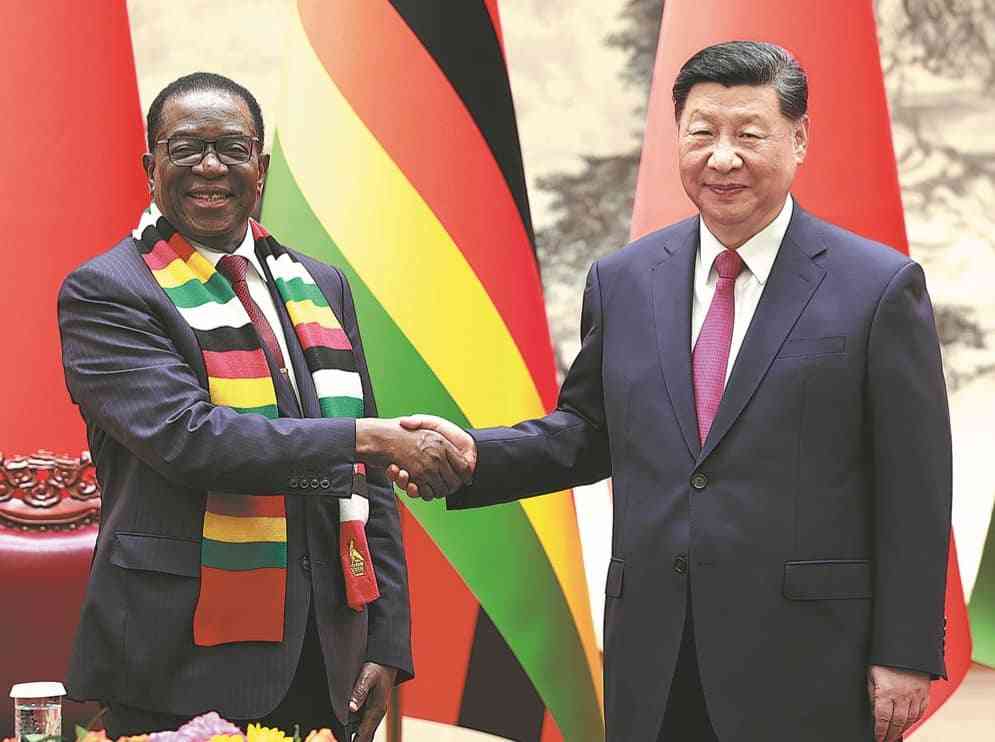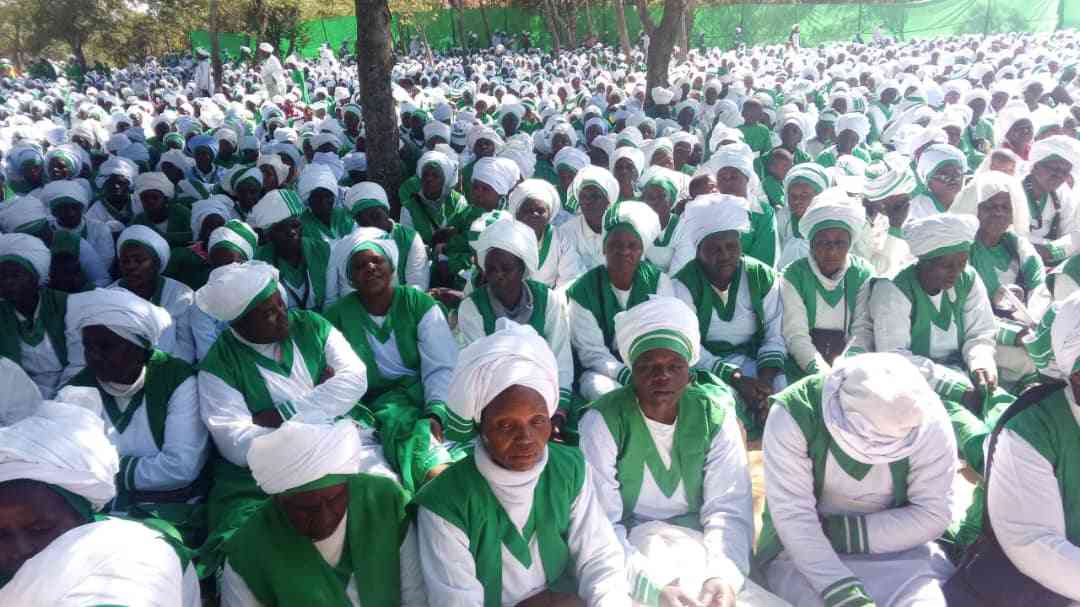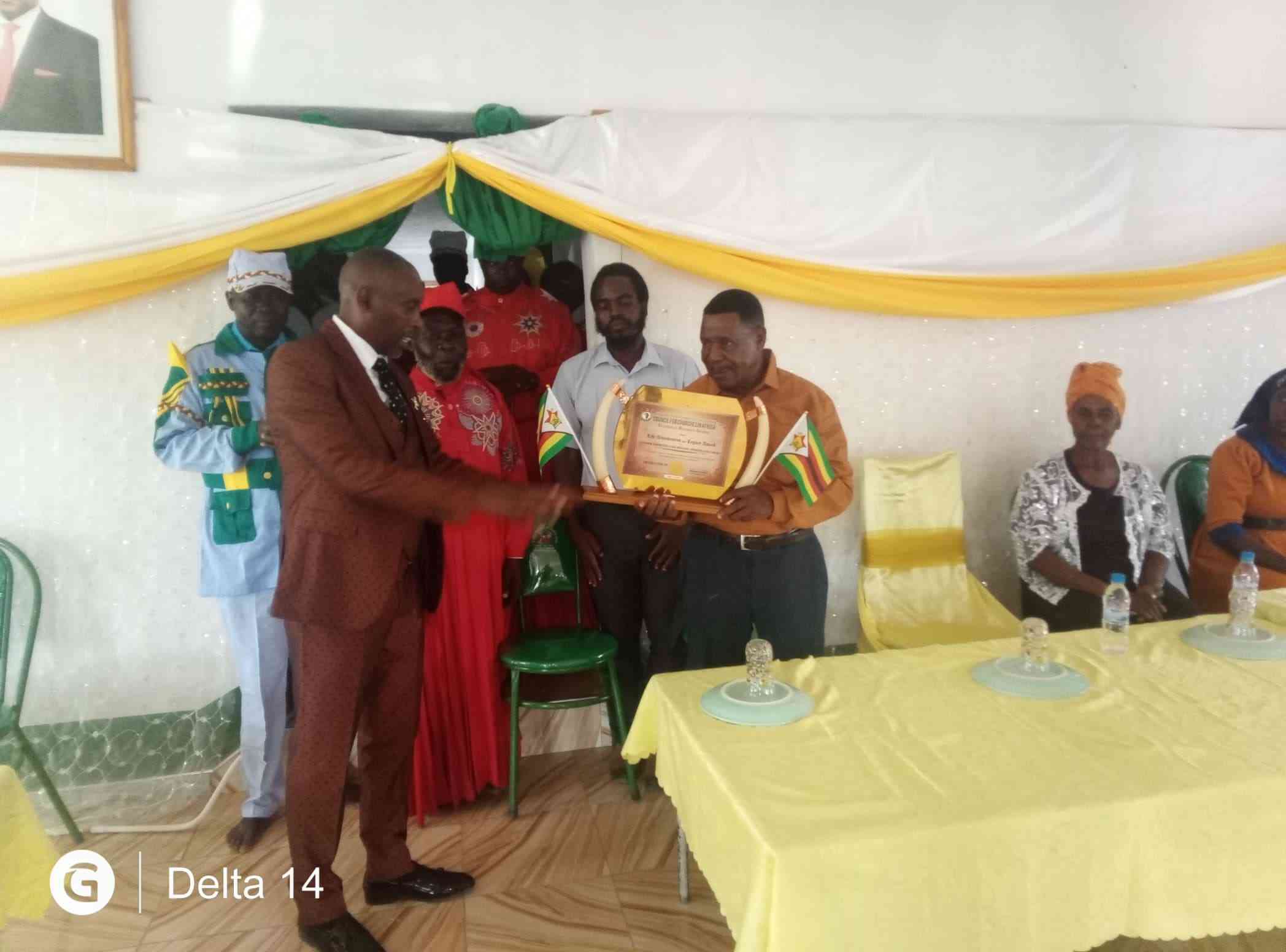
LLOYD NYIKADZINO has made an indelible mark on Zimbabwean theatre. Raised in Highfield, Nyikadzino’s unexpected journey into theatre led him to establish platforms that empower local artists.
His innovative partnerships and commitment to arts education are transforming Zimbabwean theatre and fostering cultural exchanges worldwide. Standard Style reporter Sandra Ngwaru (SN) recently caught up with Nyikadzino from the Zimbabwe Theatre Academy (ZTA) who shared his views about theatre in Zimbabwe.
Below are excerpts from the interview.
SN: How did growing up in Highfield, initially aiming for a military career, shape your approach to theater?
LN: Well, growing up in Highfield, and reflecting on all that we experienced with my colleagues, it’s clear that being born in this neighbourhood was truly a privilege because of the invaluable life lessons l acquired for the setting instilled in us a sense of fortitude when confronted with adversity and this is when the military inclination was developed. This interest was also sparked by the captivating stories shared by fellow community members, who had or were serving in the armed forces. Perhaps it was an inclination made more from intuition rather than deep contemplation.
As young people, we were compelled to assert ourselves in this dynamic environment, to quickly adapt, evolve, and discern our aspirations in life. It was related to living in a cinematic narrative. This exposure introduced me to the theatrical structure of life. Perhaps, that is why storytelling and theater became subjects of fascination. Each day presented distinctive objectives, with the overarching aim being survival and the relentless pursuit of excellence in all endeavors. One had to rely on the communal aspirations while also maintaining a clear personal objective. However, upon realising the stringent physical and mental demands of a military career, which I lacked at the time, I discovered a passion for theatre production that resonated deeply with me. The rest, as they say, is history.
SN: How has the collaboration between ZTA and international institutions like Dell'Arte International introduced new methodologies and opportunities for aspiring Zimbabwean theatre artists?
Having engaged in devised and socially engaged theatre under the mentorship of Silvanos Mudzova during my high school years and Patrick Tembo post my high school education, I was able to lay a solid groundwork in the art of storytelling and self-expression. Subsequently, I delved into studies at Dell’Arte International School of Physical Theatre, where I was exposed to avant-garde devised and physical theatre methodologies. This encounter triggered a profound shift in the landscape of theatre creation and performance practices within specific circles, notably at the Zimbabwe Theatre Academy. The collaboration between ZTA and esteemed international institutions such as Dell'Arte International has bestowed Zimbabwean theatre artists with invaluable opportunities to delve into their artistic inclinations and tap into global platforms.
- Nyathi vows to stand up for other women
- Nyathi vows to stand up for other women
- Local plays get regional recognition
- TeOne students leak HEXCO exam papers
Keep Reading
Upon completing my studies at Dell’Arte, in partnership with the institution, I lead off the Dell’Arte/ITI Zimbabwe; African scholarship programme. Through this venture, we annually sponsor a Zimbabwean individual to undergo training at the institution. The initiative has notably empowered individuals like Chipo Chikara Nyoni, Tafadzwa Bob Mutumbi, Kudzai Sevenzo, Teddy Mangawa, Nyaradzo Nhongonhema, Everson Ndlovu, Eddington Hatitongwe, Cadrick Msongelwa, and Mpilo Mpatamasango, who have subsequently spearheaded remarkable theatre endeavors in Zimbabwe and abroad.
SN: When was Mitambo International theatre festival born and what is its impact on local and international artists?
LN.The Zimbabwe Theatre Academy inaugurated the Mitambo International Theatre Festival in 2019, which has been an annual event ever since, attracting participants from more than 20 countries with a total of more than 60 theatre performances. The Mitambo International Theatre Festival (MITF) serves as a secure platform for both local and global communities, emerging and established artist to access and celebrate the diverse tapestry of cultural identities. Mitambo functions as a forum where issues pertaining to the youth, community, and societal concerns such as youth involvement, climate change, gender-based violence, and substance abuse are presented, explored, and reimagined, utilising theatre as a conduit for such dialogues.
The festival's various editions maintain their inclusive stance by not only encompassing theatrical productions but also a myriad of art forms including music, poetry, performance art, dance, and emerging media genres. In the words of Howard Shalwitz: "Theatre does no harm; it expresses a fundamental human instinct, unites individuals, models democratic dialogue, contributes to education and literature, stimulates economic revitalisation, and shapes our perspectives on our own lives". This is also the goal of the festival, to provide a platform for people to shape their own narratives.
Moreover, as a festival, we firmly believe in the transformative power of theatre, as highlighted by Chipo Chung in her speech during the inaugural edition of the festival in 2019. “We don’t need to win votes to be able to express and commune with what other citizens feel. We just need an empty space, our talents, our imaginations, our empathy, our bodies and our audience. We need art to gather us together to display our various identities, and celebrate our collective identity, that of our humanity.We need art to communicate to the rest of the world who we are, and be the platform through which we learn about the rest of the world, and dance together”. Therefore, the Mitambo International Theatre Festival not only plays a pivotal role in elevating the prominence of a locally interconnected and increasingly sustainable theatre sector strategically positioned to contribute to broader socio-economic and socio-cultural development, but also actively participates in the cultural and creative networks of the world.
The festival epitomizes the utilization of theatre as a tool for positive expression, providing a platform that not only showcases but also promotes Zimbabwean theatre artists as they collaborate with practitioners from the international community. And here at ground zero, when the aspirations of the generation before us have come full circle, we need to come up with new visions of who we are and where we are going as a society through the Mitambo Festival.
SN: What efforts have you made to make theatre accessible to disadvantaged communities?
LN: Through the establishment of the Zimbabwe Theatre Academy, we have been committed to offering professional artistic training opportunities to young individuals, especially those facing educational or financial hindrances that obstruct their pursuit of higher learning. Certain individuals encounter difficulties in fulfilling university admission requirements due to their academic background, while others find it challenging to navigate the unfamiliar terrain of higher education institutions. The academy had trained young women and people from Hwange, Binga, Bulawayo, Harare, Mutare, Masvingo, Mvurwi, Chinhoyi and Marondera.
Zimbabwe Theatre Academy has also been involved in conducting outreach performances for numerous years at the Tongogara Refugee Camp, Children's Homes in Harare, and the Hopley community in collaboration with Clowns Without Borders to render theatre more accessible to underprivileged communities.
SN: What have been your most notable achievements as ZTA?
LN: Since its inception, the Zimbabwe Theatre Academy Trust has successfully recruited and trained seven cohorts. The academy has crafted and staged original, high-caliber theatre productions such as Zandezi, My Zimbabwe, Gang Leader, Breathing Grave, The Stone, Coming Home, Deep Down Inside, and I am/was Marah. Several of these productions have garnered prestigious accolades, including the Best Theatre Production title and two Best Actor awards at the Bulawayo Arts Awards in 2019, as well as a Best Director award at NAMA for the Zandezi (2020) and I am/was Marah (2014) productions.
In 2022, the academy was bestowed with the Dell’Arte International & Institut for Popular Theatre Prize of Hope. Additionally, ZTA collaborates with local theatre entities to mentor up-and-coming directors, writers, and actors who are unable to engage in the academy's full-time training regimen. A recent collaboration in December 2019 was executed in conjunction with the Jasen Mphepo Little Theatre.
Furthermore, in association with Heart and Soul Radio, the Zimbabwe Theatre Academy has established and currently operates a tele-radio theatre programme on air. The primary aim of this endeavor is to utilise digital media to champion theatre and address pertinent community concerns. Last year, this program reached an audience of 12,000 listeners.
In a relatively concise yet impressive timeframe, the academy has secured accreditation from the Ministry of Higher and Tertiary Education, Innovation, Science, and Technology Development. This accreditation enables the academy to offer certified theatre courses that are endorsed by HEXCO.
SN: What is your vision for the Zimbabwe theatre scene on the global stage?
LN: Through the academy, we aspire to enrich and amplify the diverse and profound impact of theatre on a global scale, thereby advancing the progress of the global theater movement as a whole. We are enthusiastic about assuming a pivotal role in fostering innovation, nurturing enduring connections, and facilitating the international exchange of artistic and educational visions within the dynamic sphere of theatre for the benefit of the nation.










